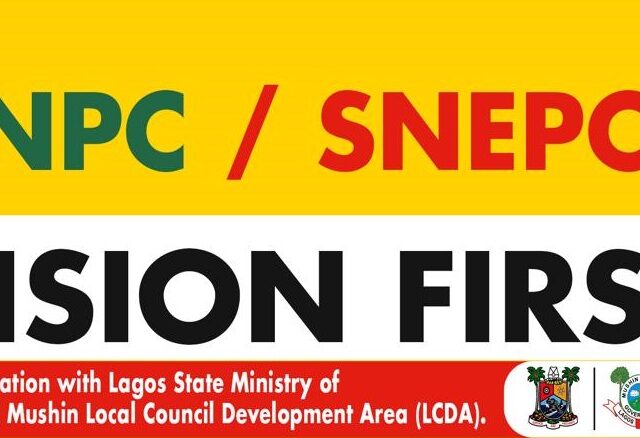- Gombe State Governor, Mr Muhammad Inuwa Yahaya, recently commissioned the first primary healthcare (PHC) centre, Doma PHC, at Jekadafari ward, located in Gombe Local Government Area (LGA)
The big idea about Universal Healthcare Coverage (UHC) is that health services should not be a luxury, and everyone, everywhere, should receive the quality healthcare they need without suffering financial hardship.
To achieve this objective, Gombe State Governor, Mr Muhammad Inuwa Yahaya, recently commissioned the first primary healthcare (PHC) centre, Doma PHC, at Jekadafari ward, located in Gombe Local Government Area (LGA).
During the unveiling of the centre, the Governor said the construction of the PHC in the ward is in line with the nation’s and World Health Organization’s (WHO) priorities to ensure access to health care for all, particularly the poor, thus contributing to overall national productivity.
Present at the unveiling was the WHO Country Representative, Dr Walter Kazadi Mulombo.
Mr Yahaya said the provision of a functional health facility in the ward will facilitate easy access to health services for vulnerable people, improve immunization coverage, provide basic curative services, and maternal and child health services, as well as preventive services.
“We are intentional about providing a PHC in each ward across the state and will continue to collaborate effectively with WHO to ensure everyone, everywhere have access to healthcare services closer to their doorsteps,” he said.
The governor commended WHO for being a reliable partner to the state in delivering health care services to people across the state.
Applauding the state government for its efforts, Dr Mulombo said providing a PHC facility in the ward underscores WHO’s priorities on UHC because that is the way to ensure everyone has access to basic health services.
We are intentional about providing a PHC in each ward across the state and will continue to collaborate effectively with WHO
He said the WHO will continue to support the state to provide quality health care services to the people, especially those who are vulnerable.
According to WHO scaling up PHC interventions in Nigeria could save the lives of millions and increase average life expectancy by 3.7 years by 2030.
In Gombe state, WHO has supported the capacity building of 600 health care workers on health service delivery and outbreak response, and donated cholera kits to the state.
During the peak of malaria seasons, WHO provided prophylaxis drugs to 813 169 children between the ages of 3 and 59 months.
Meanwhile, Dr Mulombo, in an earlier visit to Biu, a town and LGA located in the southern part of Borno state, paid a courtesy call on the Emir of Biu, Mai Mustapha Umar Mustapha.
During the meeting, Dr Mulombo highglihted the historic role that traditional leaders played in polio eradication and presently, efforts to improve immunization in the region.
Dr Mulombo briefed the Emir on how WHO supports the region to access quality health services by expanding the Biu General Hospital to offer healthcare services to the community.
“When diseases spread, they spread in the communities and individuals in such communities need the right to quality health services. The expanded segment of the hospital will be equipped with state-of-the-art equipment to cater to thousands of people living in the community,” he said.
Given the level of influence of traditional and political leaders within the communities, WHO has been strategically engaging with them to achieve the 2023 Triple Billion Targets ‒ that is, 1 billion more people benefitting from universal health coverage; 1 billion more people better protected from health emergencies; and 1 billion more people enjoying better health and well-being.
The Emir applauded the WHO for its collaboration with Borno State Government to improve the quality of health services available to the people of his community. “We will be more than happy to continue to strengthen our collaboration with WHO as the current partnership and ongoing project will not only improve the health of the people living in the locality but will also cater to individuals living in other neighboring LGAs and states as well,” he said.
WHO interventions in both states are conducted with funding from the government of Germany, the United States Agency for International Development, the Nigerian Humanitarian Funds, Bill and Melinda Gates, the Contingency Fund for Emergencies, the European Union, the European Civil Protection and Humanitarian Aid Operations, the government of Canada, and GAVI, the Vaccine Alliance.
Distributed by APO Group on behalf of World Health Organization (WHO) – Nigeria.







